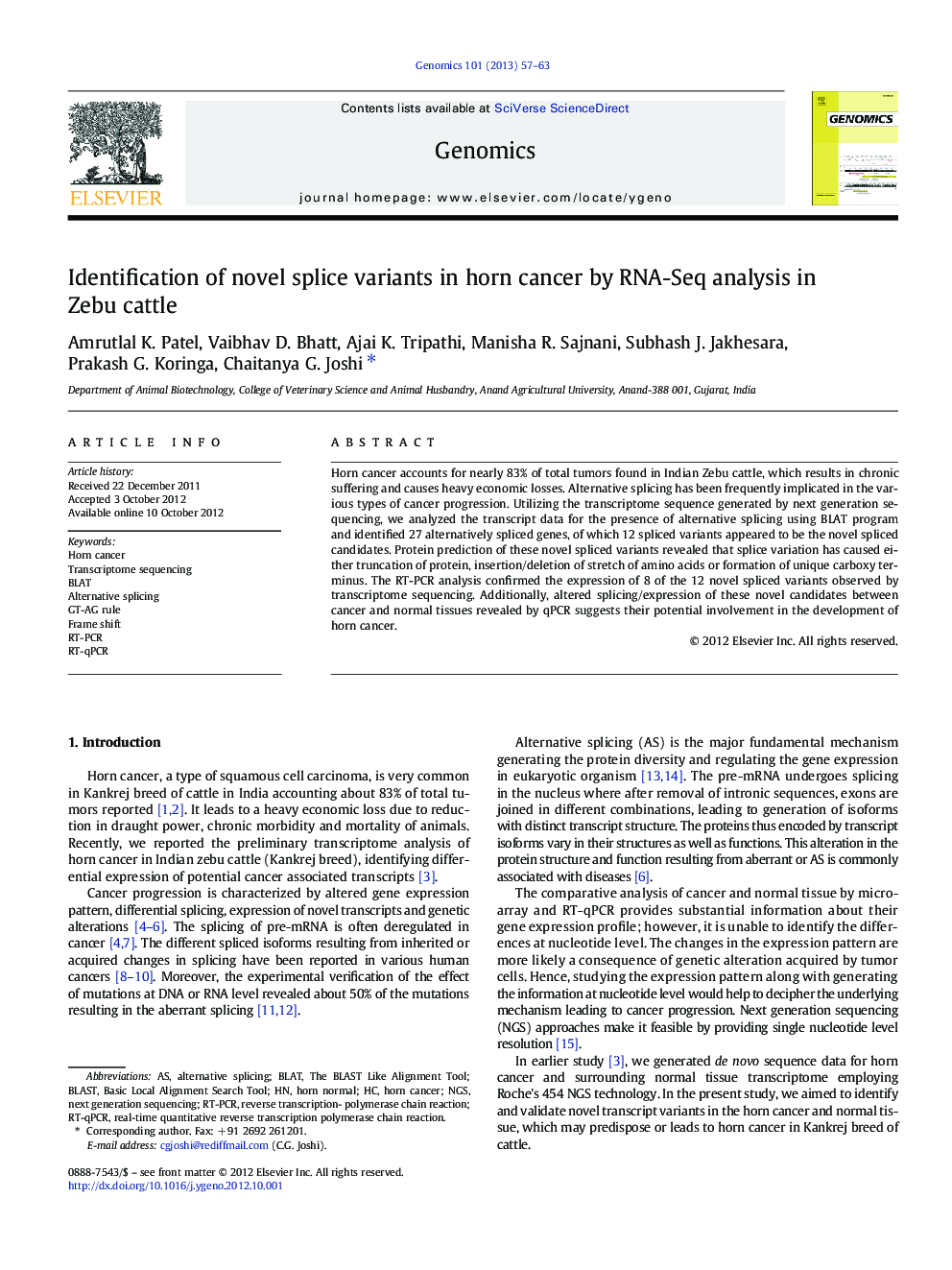| Article ID | Journal | Published Year | Pages | File Type |
|---|---|---|---|---|
| 2820845 | Genomics | 2013 | 7 Pages |
Horn cancer accounts for nearly 83% of total tumors found in Indian Zebu cattle, which results in chronic suffering and causes heavy economic losses. Alternative splicing has been frequently implicated in the various types of cancer progression. Utilizing the transcriptome sequence generated by next generation sequencing, we analyzed the transcript data for the presence of alternative splicing using BLAT program and identified 27 alternatively spliced genes, of which 12 spliced variants appeared to be the novel spliced candidates. Protein prediction of these novel spliced variants revealed that splice variation has caused either truncation of protein, insertion/deletion of stretch of amino acids or formation of unique carboxy terminus. The RT-PCR analysis confirmed the expression of 8 of the 12 novel spliced variants observed by transcriptome sequencing. Additionally, altered splicing/expression of these novel candidates between cancer and normal tissues revealed by qPCR suggests their potential involvement in the development of horn cancer.
► Alternatively spliced variants identified by transcriptome sequencing. ► BLAT analysis identified 27 alternatively spliced variants in horn tissues. ► Twelve novel alternatively spliced variants identified in horn tissue. ► Expression of 8 of 12 novel spliced candidates was confirmed by RT-PCR. ► RT-qPCR revealed altered splicing/expression of novel candidates in horn cancer.
